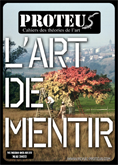Faire du neuf avec du vieux : propagande, institutionnalisation et mutations sociales en Chine
Abstract
 Télécharger l’article
Télécharger l’article
Paru dans : Proteus n°18

Cet article a pour objet l’étude de certaines caractéristiques de la propagande chinoise. Grâce à l’appui d’un corpus d’archives ainsi que d’une littérature scientifique dédiée, nous avons procédés à l’analyse des transformations politiques et institutionnelles particulièrement conséquentes qui se sont produits en République Populaire de Chine dans la deuxième moitié des années 1970. Ces quelques années dans l’histoire chinoise marquent la fin du maoïsme et amorce le virage économique que s’apprête à prendre le pays. Au-delà de sa dimension emblématique, cette période illustre donc l’incroyable capacité d’adaptation du Parti Communiste Chinois, notamment dans sa faculté à se réinventer au sein des imaginaires et des représentations de la société. Nous sommes ainsi parvenus à isoler certains procédés essentiels à la création du discours propagandiste en République Populaire de Chine, mais aussi des mécanismes favorisant la diffusion et la réactualisation de ces discours. Nous nous sommes enfin préoccupés de voir comment l’évolution de la propagande est révélatrice des mutations sociales et politiques de la Chine.
Mots-clés : technique — slogans — bande des quatre — nationalisme — roman national
This article has for object the study of certain caracteristics of Chinese propaganda. Using dedicated scientific literature, as well as a corpus of archives, we have proceeded to the analysis of the massive political and institutional transformations that took place in the People’s Republic of China in the second half of the 1970s. These few years of Chinese history signify the end of maoism while prefiguring the economic turn that the country is about to take. Its emblematic significance aside, this period thus shows the remarkable capacity of the Chinese Communist Party to adapt, especially in its ability to reinvent itself in society’s imaginations and representations. We have managed to isolate certain processes essential to the creation of propaganda discourse in the People’s Republic of China, but also some of the mecanisms allowing the diffusion and reactualisation of these discourses. Finally, we took it upon ourselves to see how the evolution of propaganda is an indicator of China’s social and political mutations.
Keywords : Technique — slogans — gang of four — nationalism — national discourse








